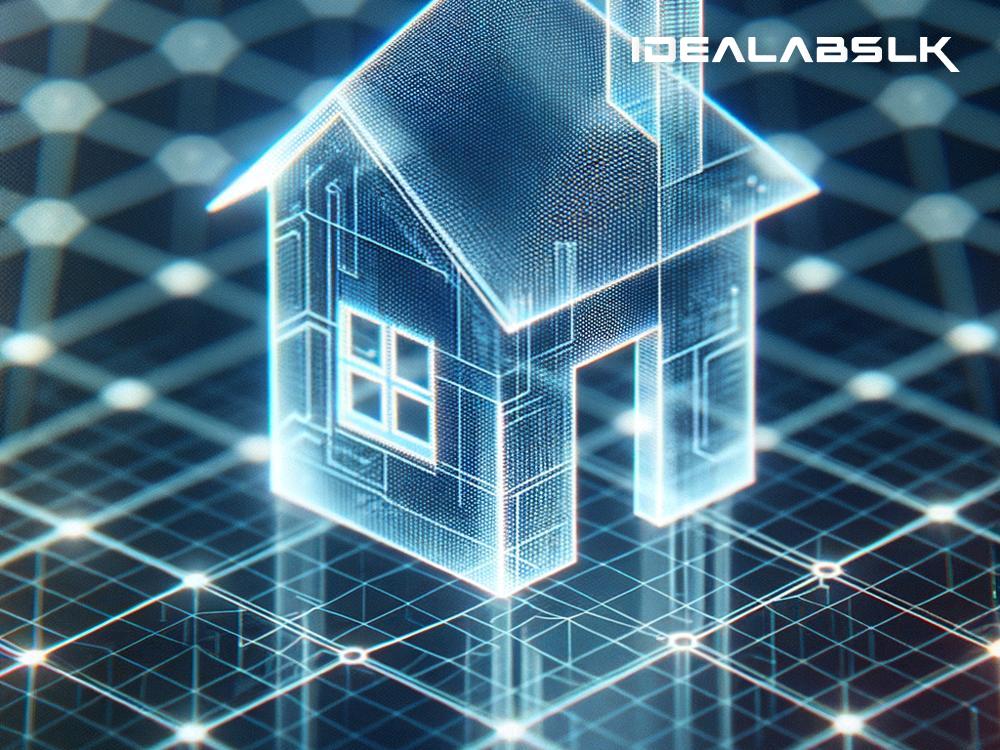"How Blockchain Can Be a Game-Changer in Fighting Real Estate Fraud"
In the world of buying and selling properties, real estate fraud has become an unfortunate but common issue. From fake property listings to forged documents, the risks are everywhere. But what if there was a technology capable of significantly reducing these risks, making property transactions safer for everyone involved? Enter blockchain technology.
Understanding Blockchain
Before diving into its benefits for real estate, let's briefly touch on what blockchain is. Imagine it as a digital ledger. But unlike traditional ledgers, this one is decentralized and distributed across a network of computers. This makes it incredibly secure and transparent. Once information is added to the blockchain, it's very difficult to change or delete it without being noticed by others in the network.
The Magic in Real Estate Transactions
So, how does blockchain reduce fraud in real estate? Here are several ways this technology is changing the game.
1. Transparent Transactions
Blockchain adds a layer of transparency unseen in traditional real estate dealings. Every transaction made on the blockchain is visible to all parties involved, and cannot be altered without everyone knowing. This means there’s a detailed and immutable record of every property’s history, from initial construction to the present day. Gone are the days where important property details could be obscured or manipulated.
2. Digital Verification and IDs
Fake IDs and documents are often used to commit fraud in real estate. Blockchain offers a solution through digital identities and certificates. These digital versions are verified and stored on the blockchain, making them nearly impossible to forge. When a property is sold or a new agreement is made, the blockchain verifies the identities and documents involved, ensuring they're legitimate.
3. Smart Contracts
Smart contracts are self-executing contracts with the terms directly written into code. These contracts automatically enforce and execute the terms of an agreement when certain conditions are met. This reduces the need for intermediaries (like lawyers or brokers), who can sometimes be the source of fraud. The transparent nature of blockchain also means all parties can trust the contract execution to be fair and accurate.
4. Eliminating Title Fraud
Title fraud is a headache in real estate, where fraudsters can forge documents to claim ownership of properties they don’t actually own. Blockchain can counter this by securely storing property titles. Each title stored on the blockchain has a unique, unalterable record, making it clear who the true property owners are. This significantly reduces the risk of title fraud.
5. Streamlining Processes
Blockchain can make the entire property transaction process more efficient. Traditional processes are often slow and filled with paperwork, making them ripe for fraudulent activities. Blockchain’s ability to securely store and share documents and verify identities can speed up transactions, reducing the time and space for fraudsters to operate.
Real-World Adoption
Countries and businesses around the globe are already exploring blockchain for real estate. Some governments are considering blockchain to manage land registries and property titles. Meanwhile, real estate companies are experimenting with smart contracts for leasing and purchasing properties. Though widespread adoption is still in the future, these initiatives show the potential of blockchain to transform the industry.
Facing Challenges
Despite its advantages, implementing blockchain in real estate is not without hurdles. There are issues of regulation, the need for technological infrastructure, and the challenge of getting everyone on board. However, the benefits suggest that tackling these challenges could be well worth the effort.
Looking Ahead
Real estate transactions haven't changed significantly for decades, but blockchain holds the promise of a revolution. With its potential to increase transparency, security, and efficiency, blockchain could be a powerful tool in fighting real estate fraud.
The journey to widespread adoption will be a marathon, not a sprint. The technology is still evolving, and the real estate industry is traditionally slow to embrace change. However, as awareness grows and success stories accumulate, we're likely to see more openness to this innovative solution.
Blockchain is more than just the technology behind cryptocurrencies. It's a testament to how digital innovations can solve real-world problems. In the fight against real estate fraud, blockchain isn't just a shield; it's a powerful weapon that could redefine the future of property transactions.

